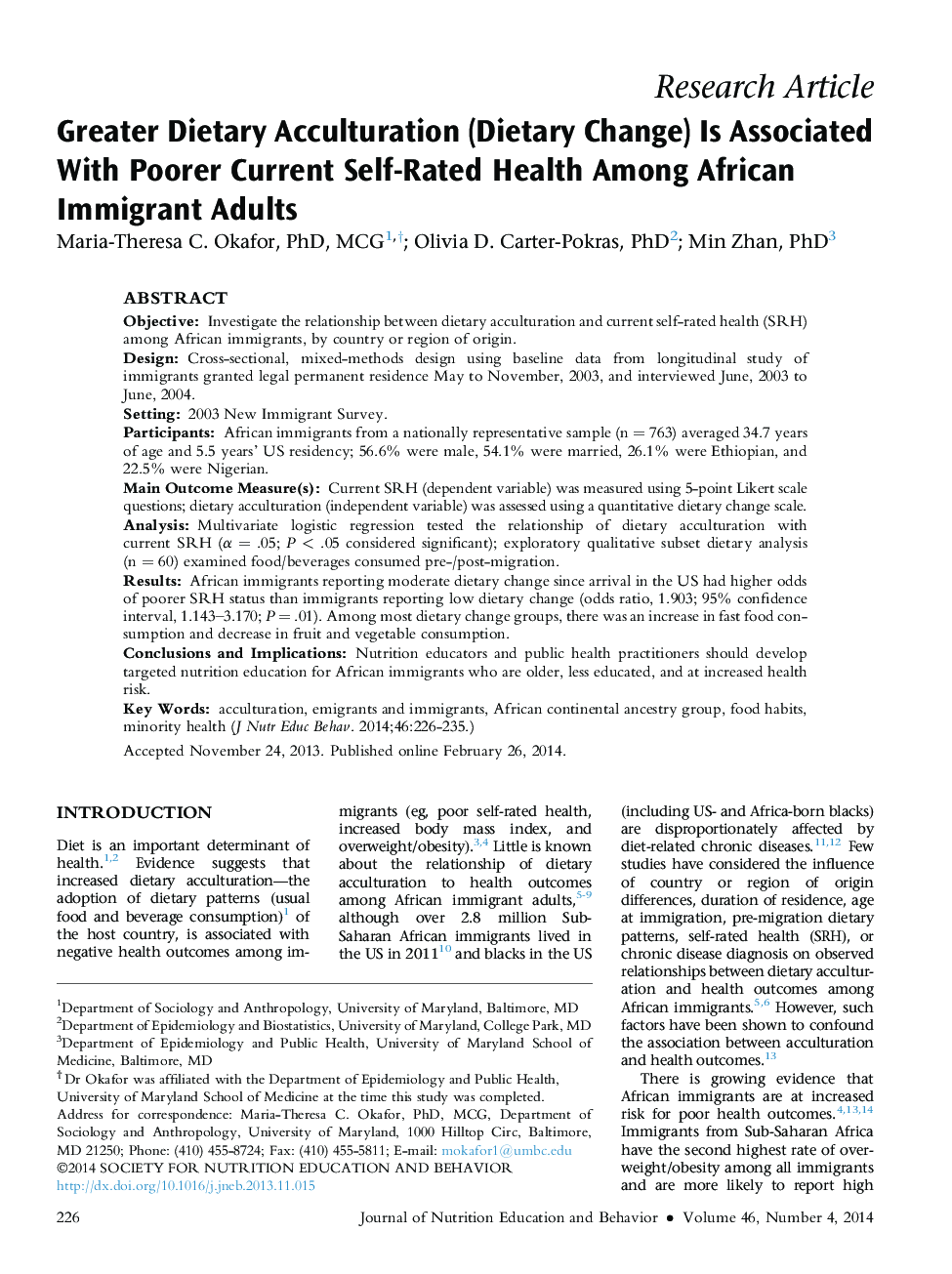| کد مقاله | کد نشریه | سال انتشار | مقاله انگلیسی | نسخه تمام متن |
|---|---|---|---|---|
| 361126 | 620587 | 2014 | 10 صفحه PDF | دانلود رایگان |
ObjectiveInvestigate the relationship between dietary acculturation and current self-rated health (SRH) among African immigrants, by country or region of origin.DesignCross-sectional, mixed-methods design using baseline data from longitudinal study of immigrants granted legal permanent residence May to November, 2003, and interviewed June, 2003 to June, 2004.Setting2003 New Immigrant Survey.ParticipantsAfrican immigrants from a nationally representative sample (n = 763) averaged 34.7 years of age and 5.5 years' US residency; 56.6% were male, 54.1% were married, 26.1% were Ethiopian, and 22.5% were Nigerian.Main Outcome Measure(s)Current SRH (dependent variable) was measured using 5-point Likert scale questions; dietary acculturation (independent variable) was assessed using a quantitative dietary change scale.AnalysisMultivariate logistic regression tested the relationship of dietary acculturation with current SRH (α = .05; P < .05 considered significant); exploratory qualitative subset dietary analysis (n = 60) examined food/beverages consumed pre-/post-migration.ResultsAfrican immigrants reporting moderate dietary change since arrival in the US had higher odds of poorer SRH status than immigrants reporting low dietary change (odds ratio, 1.903; 95% confidence interval, 1.143–3.170; P = .01). Among most dietary change groups, there was an increase in fast food consumption and decrease in fruit and vegetable consumption.Conclusions and ImplicationsNutrition educators and public health practitioners should develop targeted nutrition education for African immigrants who are older, less educated, and at increased health risk.
Journal: Journal of Nutrition Education and Behavior - Volume 46, Issue 4, July–August 2014, Pages 226–235
